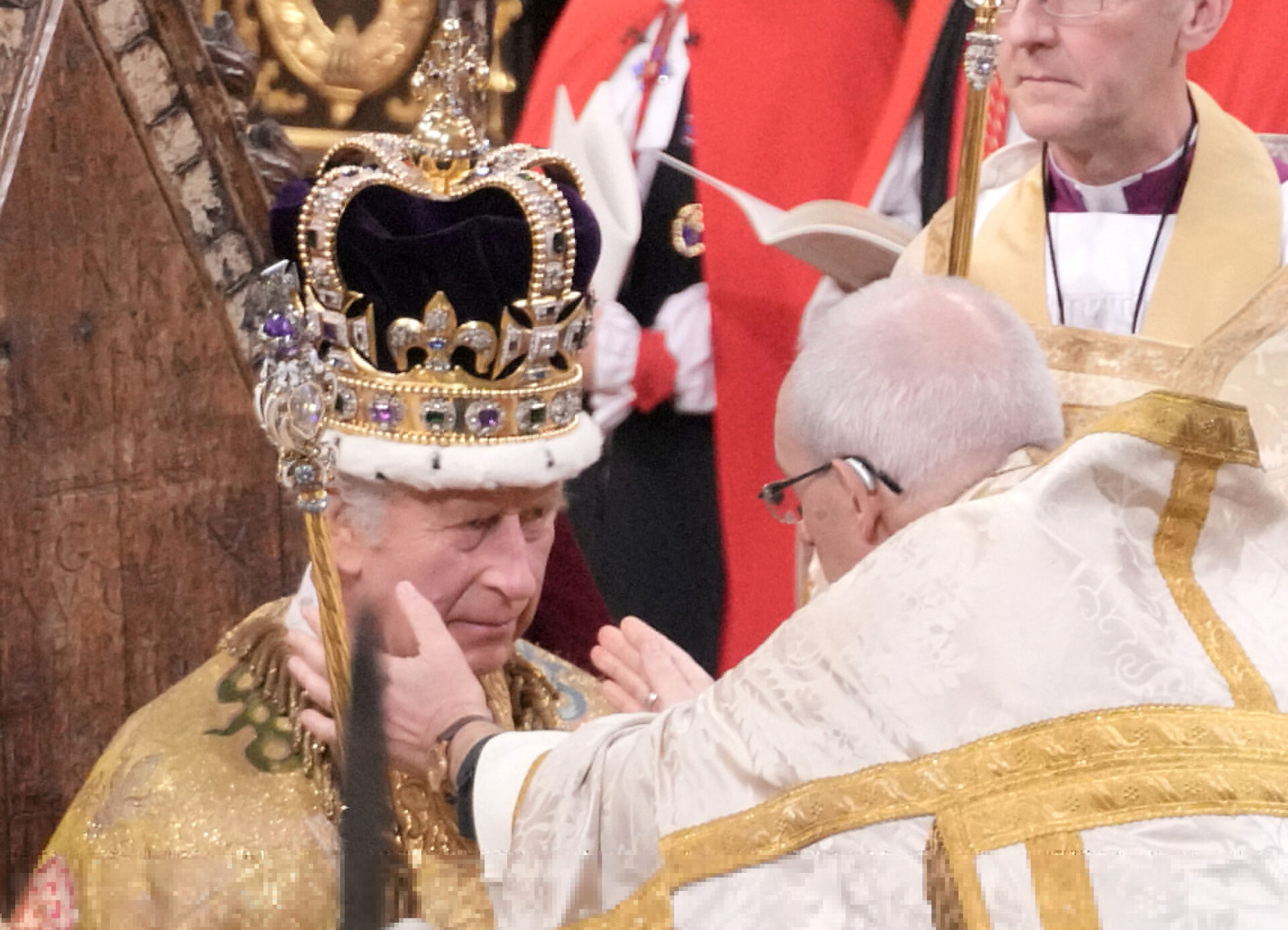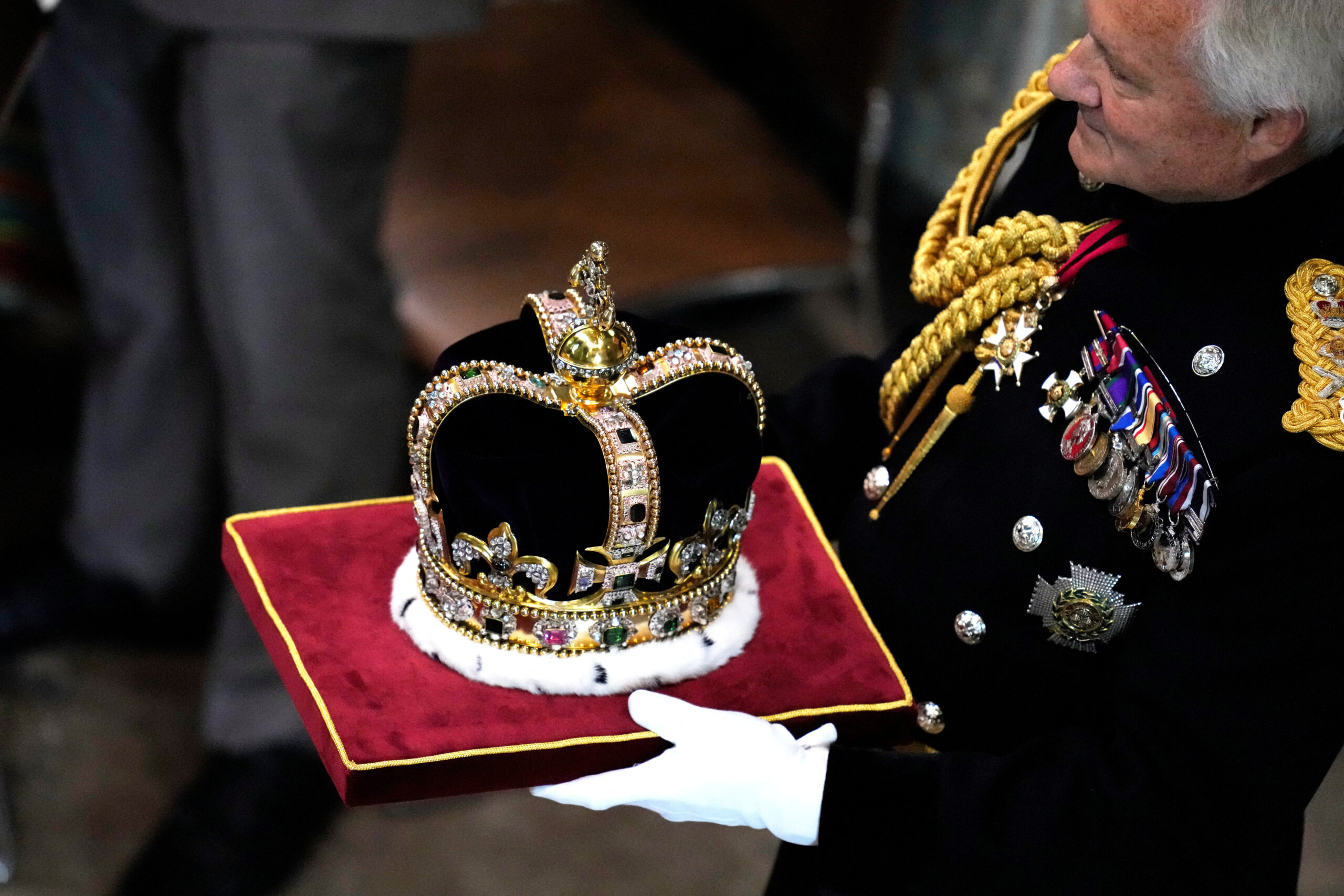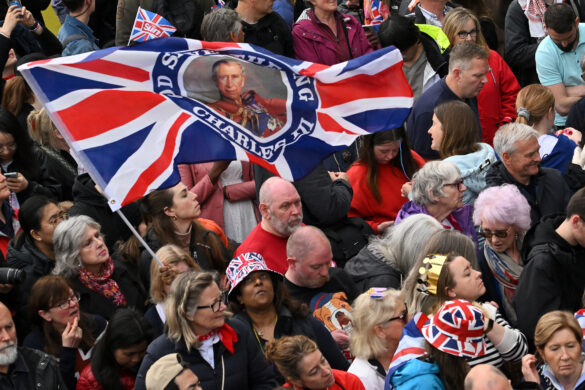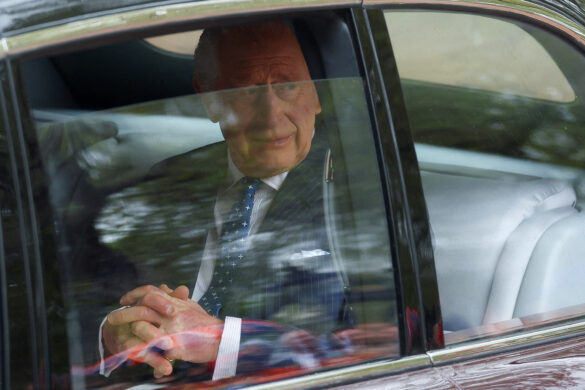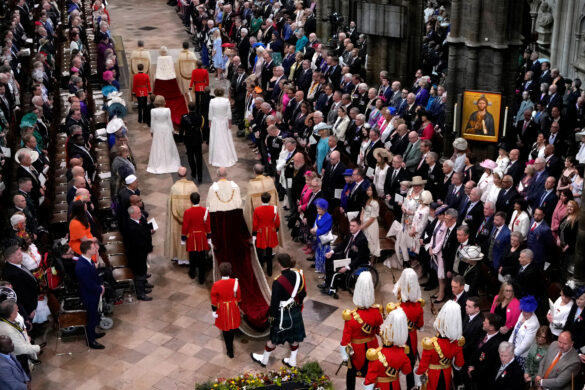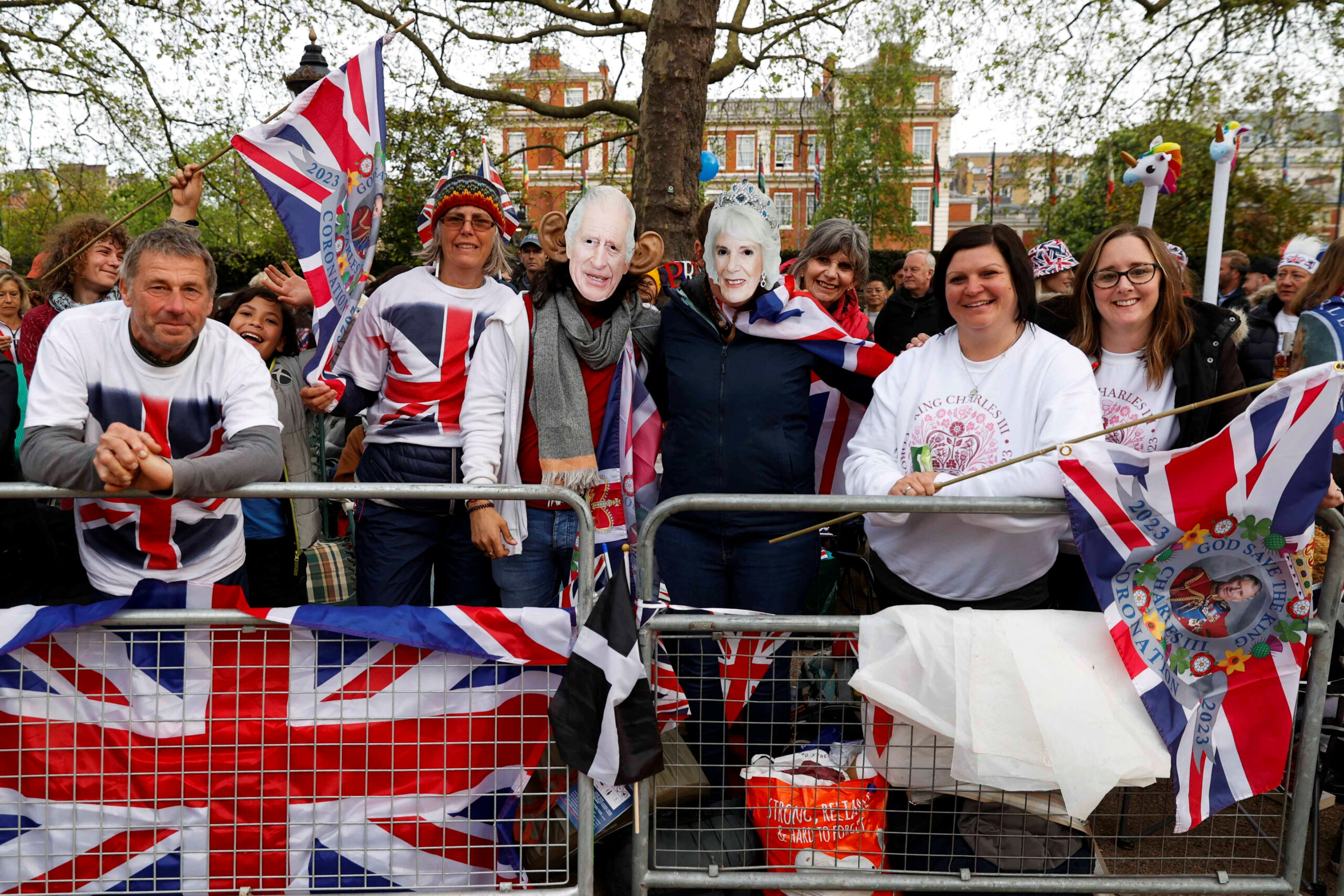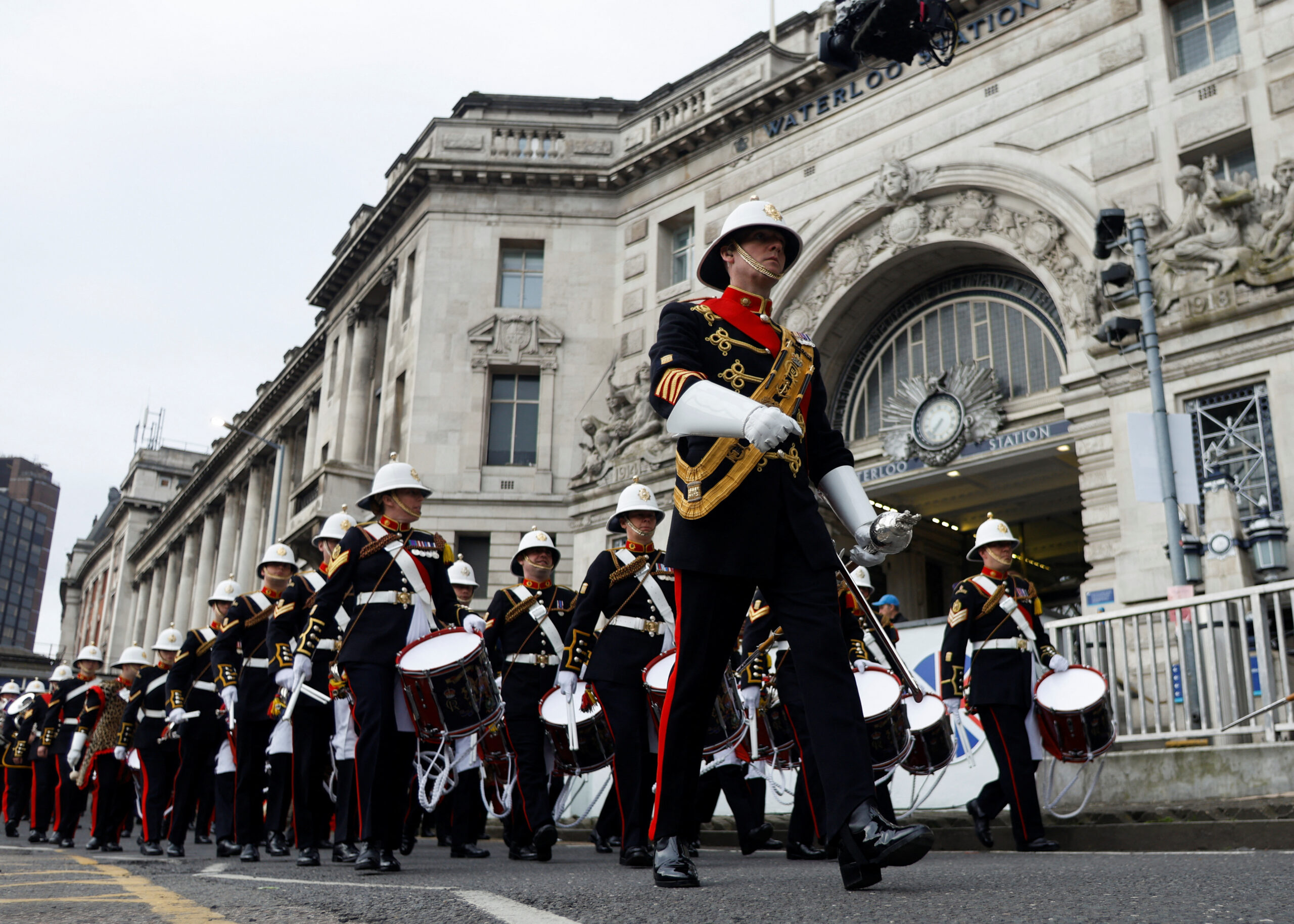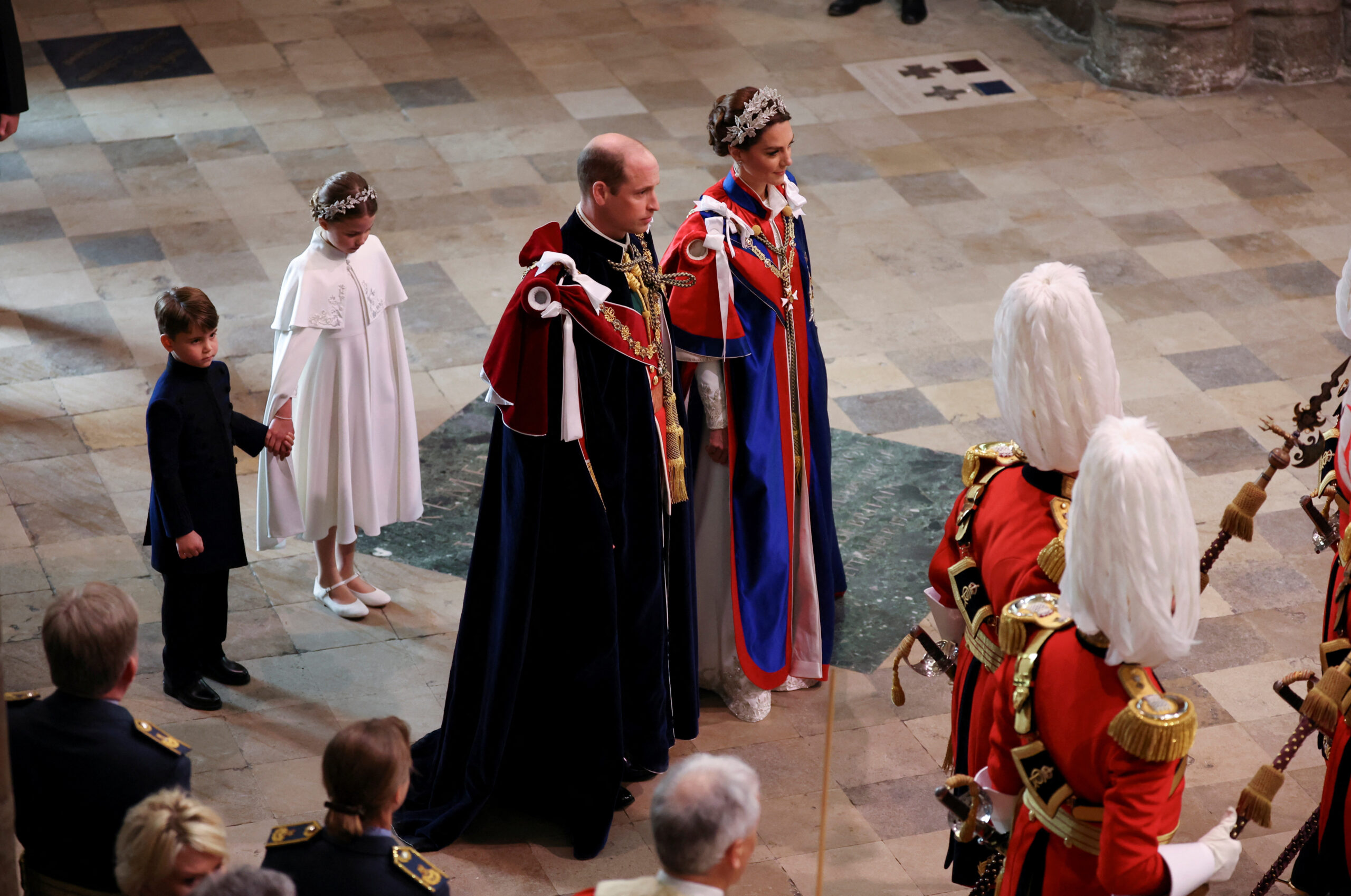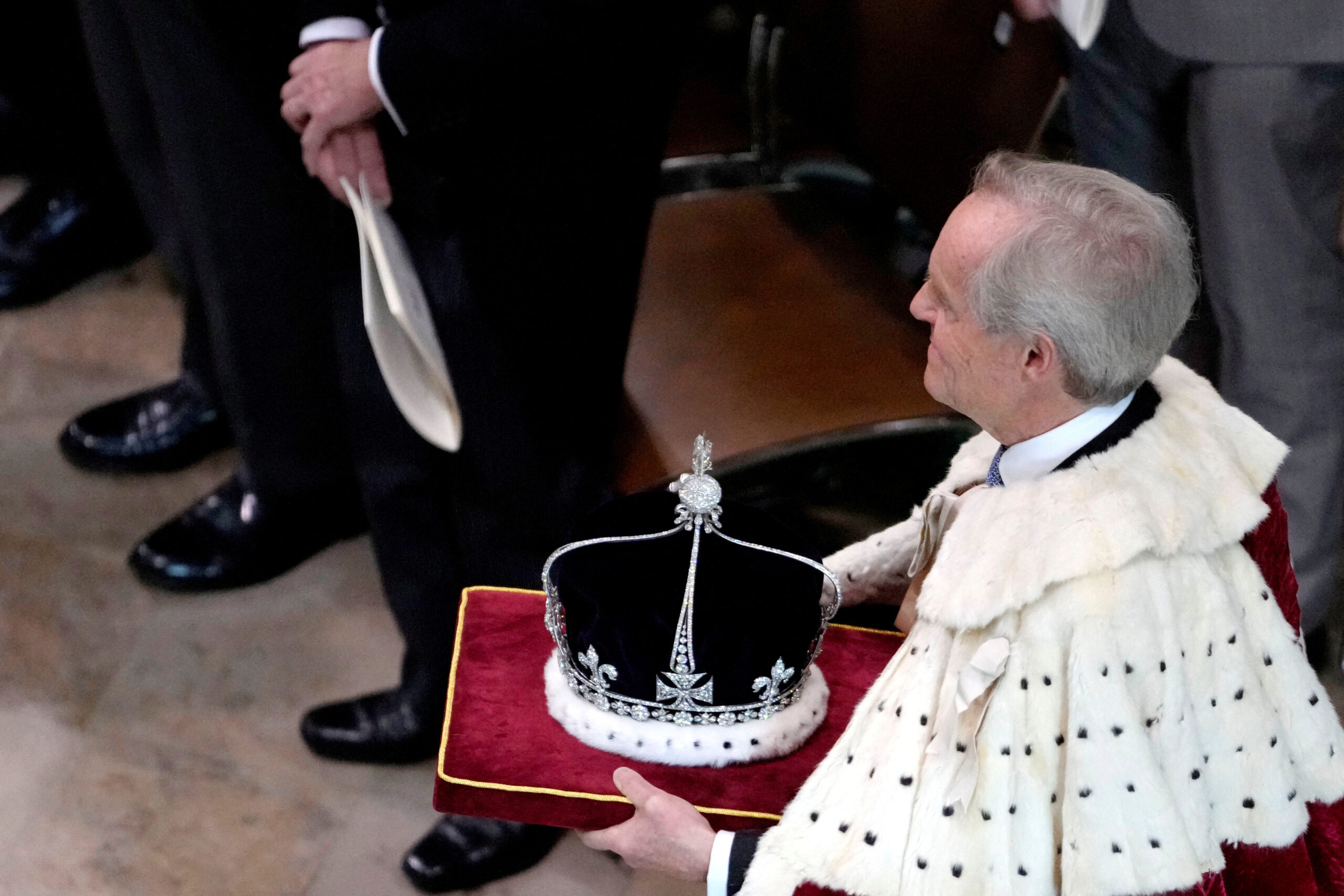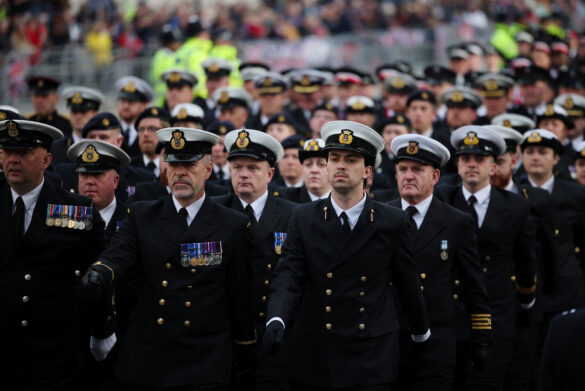
By Michael Holden, Andrew MacAskill and Paul Sandle
LONDON (Reuters) – King Charles III was crowned on Saturday in Britain’s biggest ceremonial event for seven decades, a sumptuous display of pageantry dating back 1,000 years.
In front of a congregation of about 100 world leaders and a television audience of millions, the Archbishop of Canterbury, the spiritual leader of the Anglican Church, slowly placed the 360-year-old St Edward’s Crown on Charles’ head as he sat upon a 14th-century throne in Westminster Abbey.
The historic and solemn event dates back to the time of the 74-year-old’s predecessor William the Conqueror in 1066.
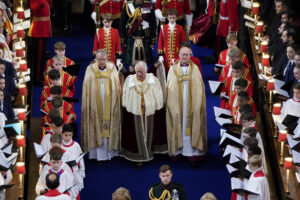
Charles’ second wife Camilla, 75, will be crowned queen during the two-hour ceremony, which while rooted in history, is also an attempt to present a forward-looking monarchy, with those involved in the service reflecting a more diverse Britain and leaders from all faiths.
For a nation struggling to find its way in the political maelstrom after its exit from the European Union and maintain its standing in a new world order, its supporters say the royal family provides an international draw, a vital diplomatic tool and a means of staying on the world stage.
“No other country could put on such a dazzling display – the processions, the pageantry, the ceremonies, and street parties,” Prime Minister Rishi Sunak said.
Read More: King Charles’ coronation to include an invitation to the public to swear allegiance
Despite Sunak’s enthusiasm, the coronation takes place amid a cost of living crisis and public scepticism, particularly among the young, about the role and relevance of the monarchy.
Saturday’s event was on a smaller scale than that staged for Queen Elizabeth in 1953 but still sought to be spectacular, featuring an array of historical regalia from golden orbs and bejewelled swords to a sceptre holding the world’s largest colourless cut diamond.
Charles automatically succeeded his mother as king on her death last September, and the coronation is not essential but regarded as a means to legitimise the monarch in a public way.
The king and queen left Buckingham Palace for the abbey in the modern, black Diamond State Jubilee Coach accompanied by cavalrymen wearing shining breastplates and plumed helmets.
Hundreds of soldiers in scarlet uniforms and black bearskin hats lined the route along The Mall, the grand boulevard to Buckingham Palace. Tens of thousands ignored the light rain to mass in a crowd more than 20 deep in some places to watch what some saw as a moment of history.
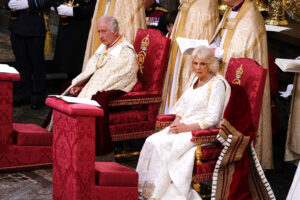
“The split-second glance of seeing the king is really important but I think the whole day as well … the idea of the nation coming together. You very much feel the pride in the nation,” said Mark Strasshine after the royal coach went by.
However, not all were there to cheer Charles, hundreds of republicans booed and waved banners reading “Not My King”.
More than 11,000 police were deployed to stamp out any attempted disruption, and the Republic campaign group said its leader Graham Smith had been arrested along with five other protesters.
Read More: Meghan hits out at UK media over King Charles’s letters
“It is an unequal and out-of-date system because it has a hereditary billionaire individual born into wealth and privilege who basically symbolises the inequality of wealth and power in our society,” said lawmaker Clive Lewis, who was among the anti-monarchy protesters.
GREAT AND GOOD
Inside the abbey, bedecked with flowers and flags, politicians and representatives from Commonwealth nations took their seats alongside charity workers and celebrities, including actors Emma Thompson, Maggie Smith, Judi Dench and U.S. singer Katy Perry.
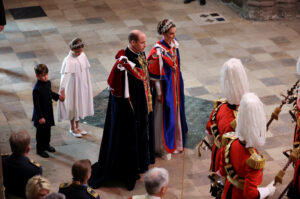
Much of the ceremony featured elements that Charles’ forebears right back to King Edgar in 973 would recognise, officials said. Handel’s coronation anthem “Zadok The Priest” was sung as it has been at every coronation since 1727.
But there was also the new, including an anthem composed by Andrew Lloyd Webber, famed for his West End and Broadway theatre shows, and a gospel choir.
Charles’ grandson Prince George and the grandchildren of Camilla acted as pages, and although a Christian service, at the end there will be an “unprecedented” greeting from faith leaders.
However, there was no formal role for either Charles’ younger son Prince Harry, after his high-profile falling out with his family, or his brother Prince Andrew, who was forced to quit royal duties because of his friendship with late U.S. financier Jeffrey Epstein, a convicted sex offender.
They sat in the third row behind working members of the royal family.
Read More: King meets Commonwealth Secretariat
Charles looked serious as he swore oaths to govern justly and uphold the Church of England – of which he is the titular head – before the most sacred part of the ceremony when he was anointed on his hands, head and breast by Archbishop of Canterbury Justin Welby with holy oil consecrated in Jerusalem.
After being presented with symbolic regalia, Welby placed the St Edward’s Crown on his head and the congregation cried out “God save the King”.

After the service, Charles and Camilla will depart in the four-tonne Gold State Coach built for George III, the last king of Britain’s American colonies, riding to Buckingham Palace in a one-mile procession of 4,000 military personnel from 39 nations.
It will be the largest show of its kind in Britain since the coronation of Charles’ mother.
“When you see everyone dressed up and taking part it is just fantastic. It makes you so proud,” said teacher Andy Mitchell, 63, who left his house in the early hours to get into London.
“My big concern is that younger people are losing interest in all of this and it won’t be the same in the future.”

